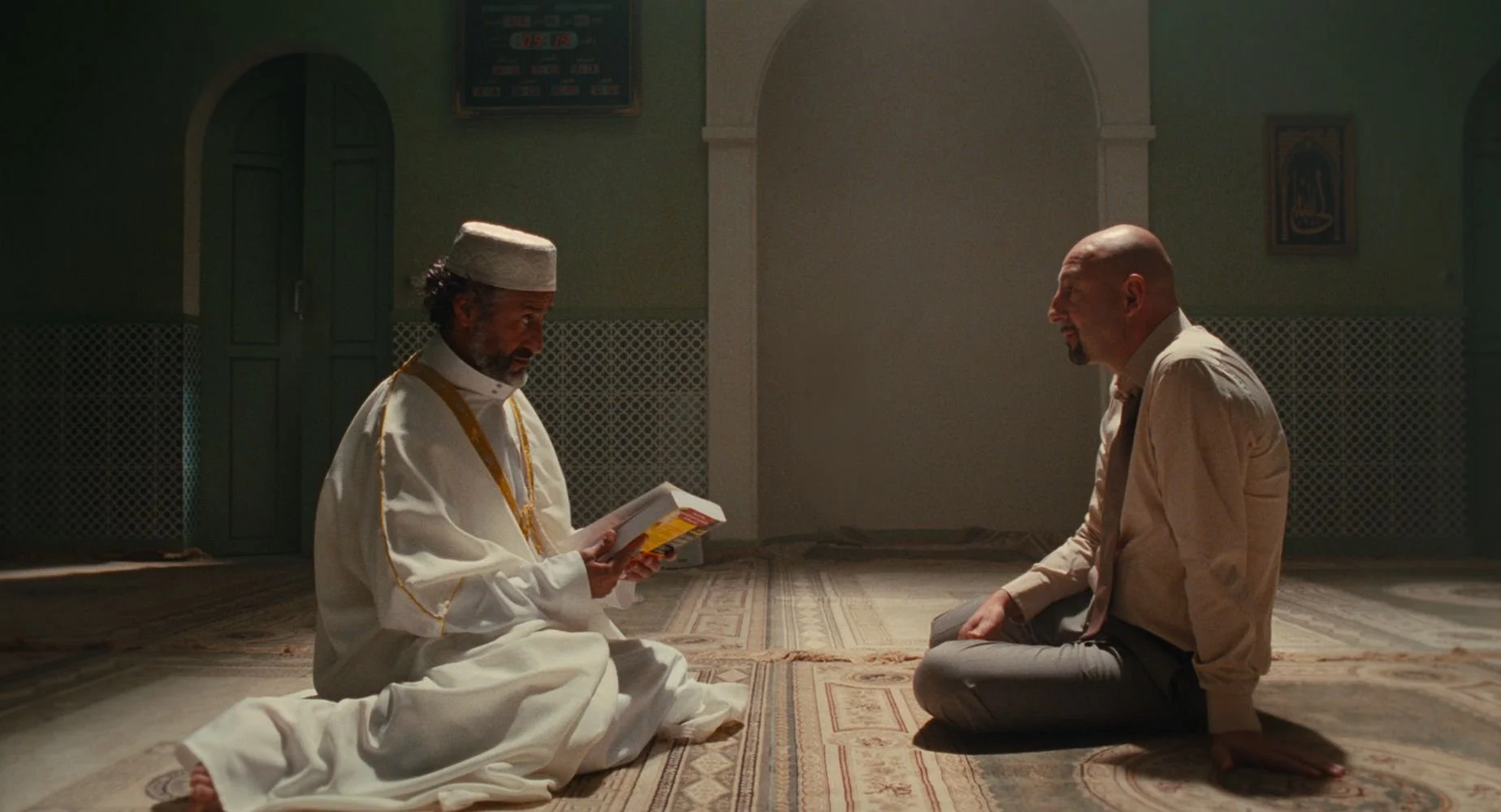Lecture Title: Humanitarian frontlines: A personal journey through the war on Gaza
Overview:
Based on Ahmad’s upcoming book, this lecture is a personal narrative of choosing to enter Gaza during war, of navigating border interrogations, building humanitarian networks, and working under fire. But it is also a philosophical reflection on what it means to be human in a dehumanized world. The lecture combines storytelling and critical insight to challenge the audience’s assumptions about courage, justice, and responsibility.
Key Themes:
First-hand experiences in war zones
Humanitarian diplomacy: trust-building under pressure
The moral dilemma of watching versus acting
The power of individual agency in global crises
Target Audience:
University students (social science, journalism, politics, humanitarian studies), NGOs, peace activists, journalists, general public.
Format:
45–60 min talk + Q&A
Takeaways:
A deeper understanding of the complexity of humanitarian work
Ethical reflections on action and responsibility
Insights into Gaza beyond media stereotypes
Lecture Title: "Arabic Literature: A Forgotten Bridge Between Worlds"
Overview:
Arabic literature is one of the oldest literary traditions, yet it remains underappreciated in the West. In this lecture, Ahmad Joumaa explores how Arabic storytelling, poetry, and philosophy have historically influenced—and can still enrich—Western literary and philosophical traditions. Drawing on works from pre-Islamic poetry to contemporary Arab authors, he shows how literature can break down cultural barriers and restore a sense of shared humanity.
Key Themes:
Historical literary exchanges between the Arab world and Europe
Literary self-esteem: the role of heritage in identity
Arabic literature as a tool for integration and intercultural understanding
How to introduce Arabic literature in Western educational and cultural spaces
Target Audience:
Public libraries, literature festivals, educators, integration professionals, Arab diaspora communities, general public.
Format:
60 min lecture + discussion
Takeaways:
New appreciation of Arabic literature’s global significance
Tools for introducing Arabic literature in Danish or Western contexts
A nuanced understanding of Arab identity and storytelling, his lecture is for anyone who loves literature, is curious about cultural traditions, or wants to explore the power of storytelling across time and cultures. Whether you're new to Arabic literature or already familiar with it, this journey will captivate you.
Lecture Title: "Know Thyself” Cultivating Unity Through Self-Awareness"
Overview:
What connects ancient Greek philosophy to modern integration? More than you’d expect. Rooted in the motto “Know thyself,” this lecture explores how self-awareness fosters empathy and bridges cultural divides. Through philosophy and real-world examples from Danish and Arabic history, Ahmad Joumaa shows how identity is shaped through cultural encounters—not isolation.
Key Themes:
Self-knowledge as the root of cultural understanding
Identity as fluid and interconnected
Danish-Arabic historical and linguistic ties
Language as a vessel of shared heritage
Cultural heritage as a bridge for integration
Audience:
Educators, libraries, integration professionals, students, cultural institutions, and curious minds.
Format:
30–60 minute lecture + optional Q&A or workshop
Takeaways:
A deeper understanding of identity and empathy
Usable historical and linguistic insights
A compelling case for integration through self-awareness
A new way to see culture—as connection, not division
Lecture Title: Literature without borders: The Arab - French connection
Overview:
In a time marked by division, literature offers connection. This lecture explores the deep cultural and literary ties between the Arabic and French worlds—from the Arab presence in Southern Europe and Napoleon’s Egypt expedition to the powerful voices of modern Franco-Arab writers. Through stories, history, and reflection, Ahmad Joumaa shows how literature transcends borders, challenges identity, and builds bridges between cultures.
Key Themes:
Literature as a tool for dialogue and coexistence
Arab-European cultural exchanges across centuries
The role of modern Franco-Arab authors in shaping identity
Storytelling as a force for empathy and shared memory
Format:
30–60 minute lecture + optional Q&A
Audience:
Cultural institutions, libraries, educators, students, and all who believe in the power of stories to unite.
Takeaways:
A fresh perspective on intercultural literature
Insight into shared Arab-French legacies
Inspiration to read and engage across cultural lines
Lecture Title: Culture Pro – Tools for Thriving in a Globalized World
Overview:
In today’s interconnected world, cultural competence is not optional—it’s essential. But how do we navigate diversity with confidence rather than confusion? Culture Pro offers a clear, practical path. Blending ancient Greek philosophy with modern anthropology, this lecture introduces a mindset of curiosity, openness, and self-awareness—what Ahmad Joumaa calls a “culture mentality.”
Key Themes:
Cultural competence as a core 21st-century skill
Self-awareness as a foundation for intercultural understanding
From tolerance to genuine appreciation
Practical strategies for meaningful cultural engagement
Audience:
Professionals, educators, students, cultural workers, global teams, and anyone navigating diverse environments.
Format:
30–60 minute talk + optional Q&A or workshop version
Takeaways:
A fresh framework for approaching cultural diversity
Tools to build respectful and enriching connections
The confidence to engage across cultural boundaries with insight and empathy
Lecture Title: Understanding the Middle East – A Century of Change, Conflict, and Ideology
Overview:
The Middle East has stood at the center of global attention for decades—shaped by revolution, ideology, and war. This lecture offers a nuanced exploration of the region’s evolution over the past 100 years, from mid-century secular independence movements to the rise of religious ideologies and today’s ongoing crises.
Combining historical analysis with philosophical insight, Ahmad Joumaa unpacks the region’s complex past to better understand its present—and its impact on the world.
Key Themes:
From nationalism to religious ideologies: major ideological shifts
Key conflicts and their regional/global consequences
The role of colonialism, superpowers, and local actors
How history, culture, and politics intersect in the Middle East
Philosophical reflections on conflict, identity, and power
Audience:
Students, educators, journalists, cultural institutions, policymakers, humanitarian workers, and anyone seeking deeper insight into the Middle East.
Format:
30–60 minute lecture + optional Q&A
Takeaways:
A clearer understanding of the Middle East’s modern history
Tools to analyze current events in historical context
New perspectives on how ideology and power shape societies
Greater awareness of the region’s global significance
Lecture Title: RONN – Communicating Culture in a Multicultural World
Overview:
In an increasingly diverse society, cultural institutions must rethink how they communicate. How do we ensure that exhibitions, workshops, and performances truly resonate with all audiences? RONN offers a clear, strategic answer.
Based on four core pillars—Relationships, Openness, Needs, and Networks—this lecture presents a practical framework for creating inclusive, engaging, and impactful cultural communication.
Key Themes:
Building emotional and cultural relationships with your audience
Fostering openness through inclusive and adaptive messaging
Identifying and addressing audience needs
Using networks to amplify outreach and relevance
Audience:
Cultural institutions, communication professionals, museums, libraries, event organizers, educators, and anyone involved in audience development.
Format:
30–60 minute talk + optional Q&A or interactive workshop
Takeaways:
A strategic framework to guide inclusive cultural communication
Tools to connect with diverse audiences more effectively
Inspiration to turn communication into meaningful cultural engagement






